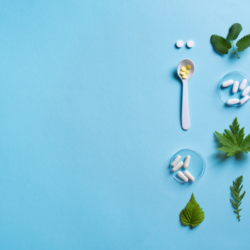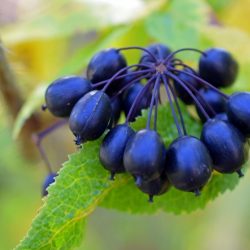Winter and a weakened immune system
What is the immune system?
The immune system is a sophisticated biological network responsible for maintaining the body’s integrity by reacting to internal imbalances and environmental threats. Made up of three billion cells and ten billion bacteria, the body must work in synergy to maintain optimal health. The immune system performs this function using specialised control and defence mechanisms.
The fundamental missions of the immune system are twofold. It identifies and regulates the body’s constituent elements (the “self”) and defends against pathogens and foreign substances (the “non-self”). It detects abnormalities via a set of cells and molecules and initiates appropriate responses.
Immunity is governed by two principles: innate immunity and acquired immunity. Innate immunity is present from birth and reacts against generic threats. Acquired immunity, developed over a lifetime, is more specific and adaptable. During an initial exposure to a pathogen, the immune system generally reacts slowly but builds up an immune memory, which speeds up and optimises responses during subsequent exposures.
The immune system relies on the identification of antigens, which are molecular markers present on pathogens and cells. Antigens can trigger specific immune responses, and the recognition of an antigen as potentially dangerous mobilises various elements of the immune system.
If the immune system malfunctions, this can lead to autoimmune diseases such as rheumatoid arthritis or lupus. In addition, an inadequate immune response can cause allergies or immune deficiencies.
In short, the immune system is a complex, adaptive biological mechanism, central to the body’s defence. A well-functioning immune system is crucial to overall health and can be influenced by a variety of factors, such as lifestyle and age.
What are the components of the immune system?
The immune system is the body’s defence force against aggressors such as viruses and bacteria. Its active agents are both cellular and molecular.
White blood cells, or leukocytes, are the main cellular soldiers of the immune system. They circulate in the blood, spotting and neutralising invaders. Lymphocytes are a specialised type of white blood cell. They play a crucial role in immune memory, enabling the system to respond more quickly to previously encountered threats.
Alongside the cells, we have free molecules such as antibodies. These are specially designed to identify and mark pathogens for destruction. They often act in synergy with white blood cells, guiding them to areas of infection.
These lymphocytes are divided into T and B lymphocytes. T lymphocytes attack infected cells and signal B lymphocytes to produce antibodies. B lymphocytes can transform into plasma cells to produce these antibodies. They also store information about past infections for a faster response in the future.
The bone marrow is the factory where blood cells are produced. It contains stem cells that differentiate into various types of blood cells, including white blood cells.
The lymphatic system is a network of tissues and organs that house and transport these immune cells. It includes elements such as the tonsils, spleen and lymph nodes.
The skin and mucous membranes act as physical barriers, preventing germs from entering the body. If germs get past this first line of defence, molecules such as antibodies and complement proteins are there to neutralise them.
In short, our immune system is a complex network of cells and molecules working in tandem to protect our body. Each element, from white blood cells to antibodies, plays a crucial role in detecting and neutralising threats to our well-being.
What are the abnormalities of the immune system?
The term ‘immune deficiency’ refers to pathological abnormalities of the immune system, rather than simply a transient immune weakness. These abnormalities are classified into two broad categories: primary immune deficiencies and acquired immune deficiencies.
Primary immune deficiencies result from genetic mutations affecting key components of the immune system, such as white blood cells. They are present from birth and are generally irreversible. More than 150 genes are currently identified as being involved in these deficiencies. They affect various parts of the immune system, including humoral immunity, involving B lymphocytes, and cellular immunity, involving T lymphocytes.
Acquired immune deficiencies, on the other hand, occur as a result of external factors, such as heavy drug treatment or viral infections. They are often more frequent than primary deficiencies and can be triggered by chronic diseases such as diabetes or serious pathologies such as cancer. Secondary immune deficiencies can also be induced by immunosuppressive drugs or therapies such as chemotherapy and radiotherapy.
Symptoms of immune deficiency include recurrent, severe and prolonged infections. Sometimes they are associated with autoimmune diseases, where the immune system attacks the body’s own tissues. Diagnosis is based mainly on symptom analysis and specific blood tests. Treatment may include antibiotics, immunoglobulins and, in severe cases, a stem cell transplant.
It should be noted that ageing and certain nutritional deficiencies, particularly in calcium and zinc, can also lead to immune deficiencies. Some deficiencies reduce life expectancy, while others may persist without any significant impact on longevity. The clinical picture is therefore extremely variable, requiring personalised medical care.
What are the causes of a drop in immune defences?
There are various reasons that can compromise the effectiveness of the immune system. The seasons and their climatic changes have a significant impact, especially in winter, when the cold, dry air weakens the nasal mucosa, making it easier for pathogenic micro-organisms to penetrate. In addition, immune reactivity is slowed and certain viruses become more robust as a result of winter conditions.
Behavioural and psychological factors, such as changes in daily routines, fatigue, stress and lack of natural light, also contribute to weakening the immune system. Sunlight, in particular, has been identified as a stimulator of the activity of T lymphocytes, which are crucial for immunity.
Healthy living plays a central role in maintaining the immune system. An unbalanced diet can limit the intake of essential micronutrients such as vitamins C, B6, B9 and B12, and minerals such as zinc. Sleep also regulates immunity, and a lack of rest can be harmful. Similarly, insufficient physical activity can increase vulnerability to infection.
Specific populations are more susceptible to immune weakening, notably the elderly and children. The phenomenon of immunosenescence in the elderly increases their vulnerability, and children are at risk because of their developing immune systems.
In short, there are a number of environmental, behavioural and demographic factors involved in the functioning of the immune system. The key to robust immunity lies in a healthy lifestyle, which includes a balanced diet, quality sleep and regular physical activity. So it’s vital to pay attention to all these elements to maintain an effective immune system.
How can you look after your immune system?
Improving the immune system is a recurring concern for many people. It is essential to focus on specific micronutrient intakes to achieve this. Vitamins such as B1, B3, B6, B9 and B12, as well as vitamins C and D, play crucial roles in regulating and boosting immunity. In particular, vitamin C strengthens the function of the epithelial barrier to pathogens. It is also involved in the activity of phagocytic cells. At the same time, vitamin D regulates the activity of macrophages. It stimulates the synthesis of bactericidal molecules.
The intestinal microbiota, residing mainly in the last portion of the small intestine and the colon, is also a vital component of immunity. It helps to differentiate between pathogenic and commensal bacteria and produces bactericidal substances. A healthy lifestyle and a diet rich in fibre and probiotics can help maintain a healthy microbiota.
For vitamin intake, fresh fruit is an excellent source of vitamin C, while oily fish such as salmon and mackerel are rich in vitamin D. Micronutrition can also be used to supplement an inadequate diet. Food supplements such as Bactivit Défenses and Immurésist can provide additional support for the immune system.
Finally, a healthy lifestyle is essential for boosting immunity. Regular physical activity, for example, can release endorphins and reduce stress, a factor known to weaken the immune system. Similarly, strict hygiene practices such as frequent hand-washing can minimise the spread of infectious agents.
In short, boosting the immune system is an achievable goal through a combination of judicious food choices, micronutrient supplementation and a healthy lifestyle.
Herbal medicine and the immune system
Phytotherapy offers a variety of plants to boost the immune system. These plants fall into two main categories: adaptogens and non-adaptogenic immunostimulants.
In the adaptogen category, ginseng increases the body’s resistance by specifically targeting macrophages and lymphocytes. Eleutherococcus, often referred to as Siberian ginseng, optimises physical effort and mental concentration. Rhodiola, a plant once prized by the Vikings, also supports the immune system.
As for non-adaptogenic immunostimulant plants, Echinacea is traditionally used for its antibacterial, antiviral and anti-inflammatory properties. Iceland Moss is effective for respiratory problems and also acts as an immunostimulant.
Plants rich in vitamin C, such as sea buckthorn and rosehip, also support the immune system. Other exotic plants such as acerola and black elderberry are also beneficial. Among aromatic herbs, thyme, rosemary and sage are commonly used for their immunostimulant properties.
In Asian traditions, mushrooms such as shiitake and reishi are used to boost the immune system. However, it should be noted that their effectiveness has not been scientifically established. Outside the plant kingdom, propolis and spirulina are other natural options for boosting the immune system.
It should be emphasised that the effectiveness of these plants varies. What’s more, they do not always benefit from robust clinical support. In addition, given the potential contraindications and possible drug interactions, it is essential to consult a healthcare professional before using them.
Herbal medicine and the common cold
As a general treatment to stimulate the body’s defences, echinacea is the plant most frequently used to treat colds. It should generally :
- Be taken as soon as the first symptoms appear
- Have antibacterial and antiviral properties
- In the absence of sufficient clinical data, we advise against its use in children under the age of 12 and in pregnant women.
- It is also contraindicated in the presence of autoimmune diseases, immune deficiency, immunosuppression or pathologies affecting leucocytes.
Other plants can disinfect the respiratory tract. These include eucalyptus globulus (leaf), Scots pine (bud) and thyme (aerial part). Ingested in the form of herbal teas sweetened with honey, these plants have an antiseptic and fluidifying action. These actions are due to the essential oils they contain.
For topical treatment, which aims to decongest nasal mucous membranes, thin secretions and have an antiseptic action, plants such as thyme, oregano, eucalyptus, pine, fir, myrrh and peppermint can be used. These plants are rich in essential oils.
Herbal medicine and sore throats
Sore throats, such as sore throats and pharyngitis, can be treated with phytotherapy. In this case, several plants should be used to combine the different effects sought. Some plants have an antiseptic action. This is the case with tannin-containing plants such as bramble (leaf), tormentil (rhizome), red rose (petal), walnut (leaf) and cypress (cone), which can be used as warm gargles. They have an antimicrobial and protective action on the mucous membranes. Other plants, this time with essential oils, are used for their antibacterial action. These include Scots pine (buds), silver fir (buds),oregano (flowering top), thyme (leaf and flowering top) and sage (leaf).
Soothing plants can also be used to treat sore throats: white broth (wilted flower), marshmallow (root) and mallow (leaf or flower). The mucilage they contain is soluble in water. When slowly absorbed or gargled, they cover the mucous membranes with a protective film.
Finally,Erysimum (leaf and flowering top), liquorice (underground organs), marigold (flower head), matricaria (flower head) and plantain (leaf) can also be used for their anti-inflammatory properties.
Herbal medicine and flu-like conditions
Herbal medicine can be a good solution for treating flu-like illnesses, as long as the treatment is started as soon as the first symptoms appear. The key is to stimulate the immune system and treat the fever and cough. To stimulate the body’s defences, 4 plants are recommended:echinacea, cypress, acerola and rosehip. Fever is treated with febrifuge plants such as willow (bark), meadowsweet (flowering tops) and cinchona (bark and stem). Sweat-inducing plants such as elderberry (flower) and lime (inflorescence) are also used.
Finally, to treat coughs, mucilage plants such as white broth, marshmallow, mallow and violet (flower) can be used. The “pectoral species”, which are a mixture of equal parts of mallow, marshmallow, bouillon-blanc, coltsfoot, cat’s foot, violet and poppy flowers, are also useful. You can also use sundew or cherry laurel water.
For more information, don’t hesitate to consult your doctor. In herbal medicine, it is very important to remember your medical history in order to identify any contraindications. It is also important to remember to take the treatment as soon as the first symptoms appear if it is to be effective, and that even with plants there may be contraindications, which is why it is so important to ask the pharmacy team or your doctor for advice, and to pay attention to the dosage and the way the plants are prepared (infusion, maceration, decoction, etc.).
Sources
- https://cancer.ca/fr/cancer-information/what-is-cancer/immune-system
- https://www.msdmanuals.com/fr/accueil/troubles-immunitaires/
- https://fr.wikipedia.org/wiki/Système_immunitaire
- https://www.passeportsante.net/fr/Maux/Problemes/Fiche.aspx?doc=renforcer_systeme_immunitaire_pm
- https://www.msdmanuals.com/fr/accueil/troubles-immunitaires/déficits-immunitaires/présentation-des-déficits-immunitaires
- https://www.vidal.fr/maladies/voies-respiratoires/grippe/phytotherapie-plantes.html
- https://www.passeportsante.net/fr/Actualites/Dossiers/DossierComplexe.aspx?doc=10-plantes-qui-renforcent-immunite







